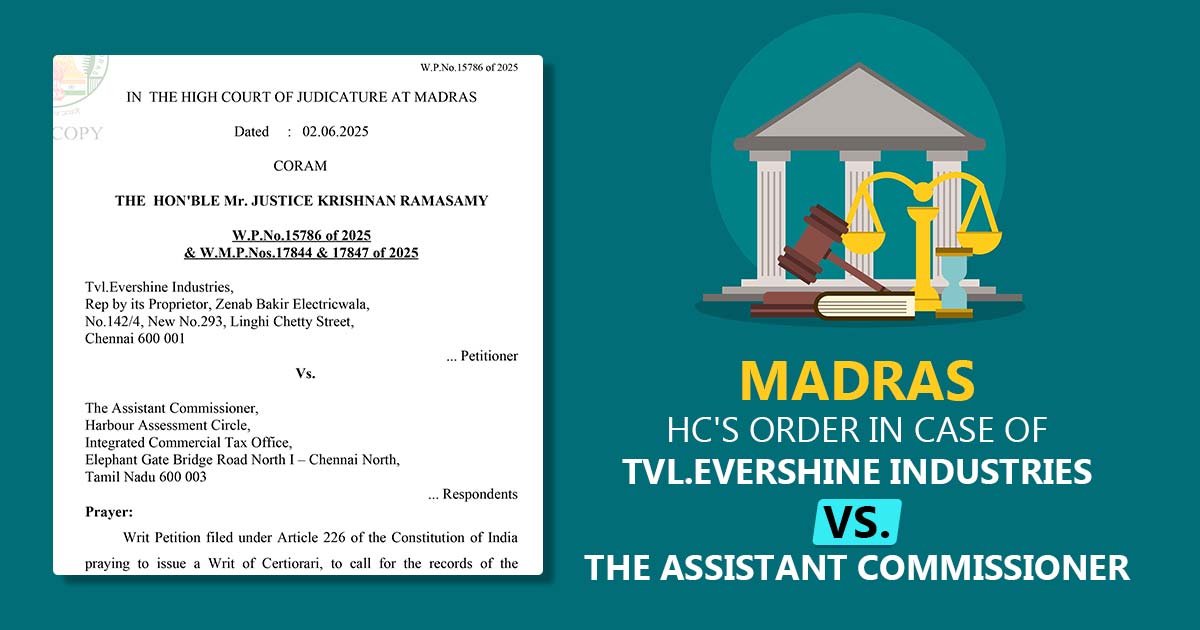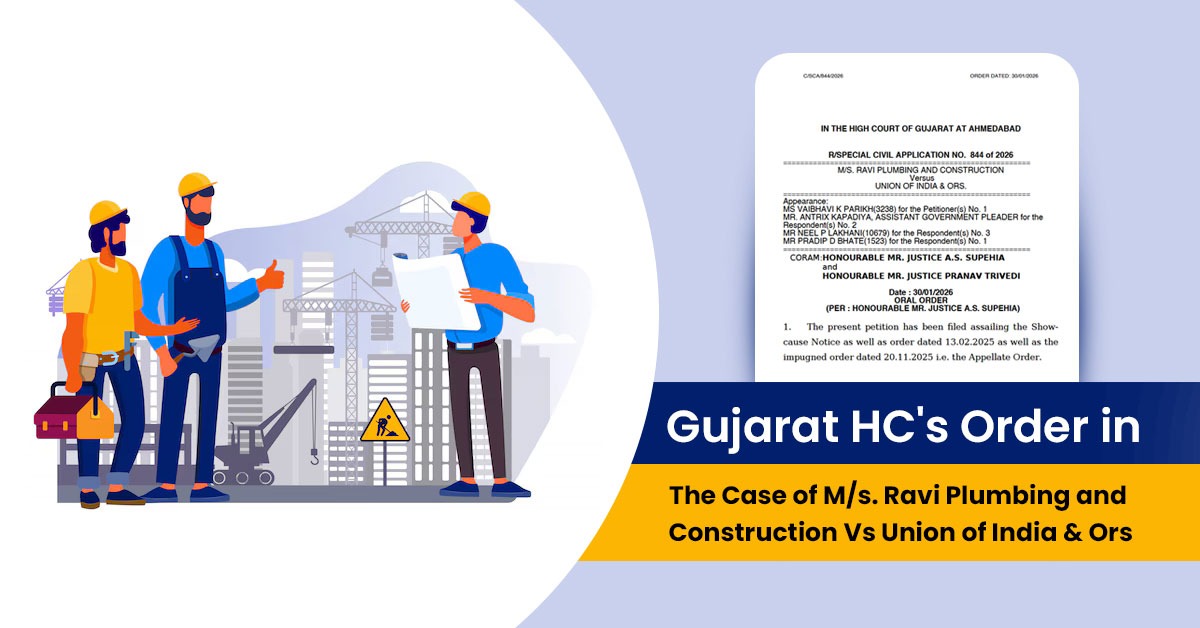
GST ( Goods and Services Tax ) orders have been set aside by the Madras High Court, which was issued under Sections 73 and 74 of the GST Act without furnishing a proper hearing opportunity on a 10% pre-deposit instead of the mandatory deposit of 25%.
Tvl. Evershine Industries, the applicant, has cancelled its GST registration in 2022, after which the tax department has continued to upload all the notices and communications only on the GST common portal under the “View Additional Notices and Orders” tab.
The applicant was clueless about these notices and therefore failed to submit the responses within the said time.
The applicant’s counsel, Mr. Viyyash Kumar, for Mr. Rupesh Sharma, contested 6 GST ex parte orders of the taxpayer. In the first writ petition. The 1st writ petition contested the Section 73 order and the Summary order on 12/04/2024.
The second, third, fourth, and fifth writ petitions contested the Section 74 order and summary order dated 5th June 2024, 22nd December 2022, 22nd February 2024, and 10th May 2025, respectively. Ultimately, the Section 73 order and summary order dated 10th May 2025 have been contested by the sixth petition.
Justice Krishnan Ramasamy in this case said that although uploading notices on the portal comprises valid service under GST law, repeated non-response must have driven the officer to use alternative modes of service specified u/s 169 of the CGST Act, like Registered Post Acknowledgement Due (RPAD) to ensure delivery and prevent unwanted litigation.
The bench mentioned that “Merely passing an ex parte order by fulfilling the empty formalities will not serve any useful purpose and the same will only pave way for multiplicity of litigations, not only wasting the time of the Officer concerned, but also the precious time of the Appellate Authority/Tribunal and this Court as well.”
The counsel of the applicant furnished that the applicant had cancelled its GST registration voluntarily, the court stated. In these cases, all the forthcoming communications must be sent to the given applicant’s email address.
The respondent (GST department) is not able to perform the same, which consequence in the impugned order being passed without providing any chance for a personal hearing, a breach of the principles of natural justice.
As per that, the court quashed all 6 impugned orders and asked the tax authorities to accept 10% payment of the applicant for the disputed tax in 4 weeks, to serve fresh notices via valid modes, and to grant a clear chance for the applicant to file responses and appear for a personal hearing. The department was asked to pass the fresh orders based on merit post hearing the applicant.
The Madras High Court remanded petitions against orders issued without a hearing in person, with a mandatory deposit of 25% of the tax in question. But, in this case, the court set the pre-deposit at 10% because the department did not try to serve notices using any other needed method, and the taxpayer did not reply to letters and orders posted on the portal after the cancellation of its GST registration.
| Case Title | Tvl.Evershine Industries vs The Assistant Commissioner |
| Case No. | W.P.No.15786 of 2025 W.M.P.Nos.17844 & 17847 of 2025 |
| For Petitioner | Mr.Viyyash Kumar |
| For Respondent | Mr.C.Harsha Raj |
| Madras High Court | Read Order |









